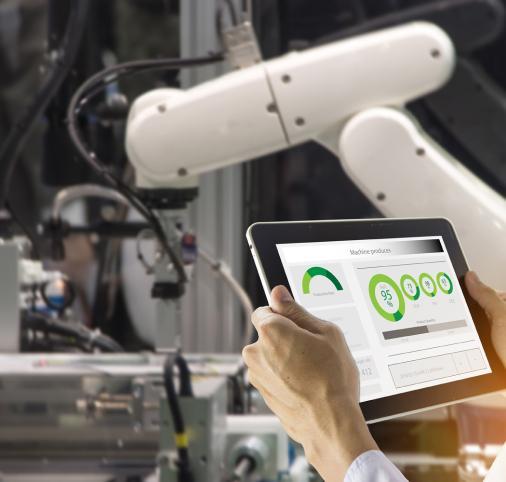Business Intelligence Based on Big Data
The power of Business Intelligence based on Big Data lies in its ability to influence business processes, to facilitate better business decisions, to find new sources of revenue, and more.
Ask us to scrape the website and receive free data sample in XLSX, CSV, JSON or Google Sheet in 3 days
Scraping is the our field of expertise: we completed more than 800 scraping projects (including protected resources)
Table of contents
Estimated reading time: 8 minutes
Introduction
The world of contemporaneity runs on data and the world of business especially. Making the best use of the information drives businesses to sustained success, however, the information is plentiful and needs an accurate and well-reasoned approach.
That’s where business intelligence and data analytics notions take their roots from. Understanding the world of big data is vital nowadays, and technology makes it easier for entrepreneurs, who are ready to take the advantage of it and benefit.
Let’s dig a little deeper and gain insight on each of the terms mentioned above and answer the question: “What is the difference between business intelligence and data analytics?”
“Business Intelligence is required to operate the business while Business Analytics is required to transform the business.”
Pat Roche, Vice President of Engineering, Noetix Products, Magnitude Software.
Business intelligence and data analysis go hand in hand, however, the terms should not be used interchangeably.
Business intelligence is the science that helps various companies to make better business decisions based on information analysis, statistics, mathematical concepts, and the usage of various tools, approaches, and methods. Thus, BI comprises various processes and actions which facilitate data collection, sharing, in-depth analysis, and reporting for more informed decision-making.
BI can be implemented to find solutions to complex problems based on Big Data and to optimize, maintain, and streamline current operations. It helps companies enhance operational efficiency and increase organizational productivity, targeting at the same time business’ weak areas and providing actionable ideas on how to cope with those problems and improve business from the ground up.
Business intelligence data helps to analyze your company, your brand, your product or service, your industry, and your market with dual goals in mind. On the one hand, it facilitates optimizing current performance, on the other hand, it allows predicting business trends and staying competitive.
Business Analytics
BA is today a significant aspect of strategy creation for future-oriented companies, that use the technologies of web data scraping, predictive analytics, and statistical analysis to drive innovation in their business operations.
Data Analytics primarily focuses on certain sets of rules to determine the relationship between data points. Both Business Intelligence and business analytics collect and analyze data, however, unlike BI it has predictive capabilities.
So data analytics deal with raw data collection, cleansing, distribution across categories, conversion, aggregation, validation, and transformation. Once data has been collected and analyzed, richly visualized reports are generated in custom dashboards, then the information fetched is used for predictive modeling. It allows solving certain problems before they occur.
What is more, BA has a powerful advantage of ad hoc reporting, which makes it possible to analyze specific circumstantial data in real-time and answer the targeted questions right away.
Thus, analytics can be divided into 3 categories: descriptive, predictive, and prescriptive.
Descriptive analytics transforms collected information into some visualized material easy-to-understand and interpret by business managers. As a rule, the reports are intended to run and view regularly to gain insights into what has happened.
Predictive analytics is concerned with insights into the future based on descriptive data and multiple data sets. When comparing BI vs predictive analytics, we should also remember that business intelligence lacks a predictive aspect.
Prescriptive analytics bears the character of advice, and research on what possible outcomes can result from certain actions. Analytics of this kind presupposes the usage of innovative modeling techniques and suggesting the desired actions for the best outcomes.
Data Science
Data science is a new field within Data Management that facilitates in gaining an understanding of the relationship between structured and unstructured information. In case you want to compare bi vs data science, we should mention that the latter requires a higher level of mathematics and statistics expertise in dealing with big datasets, relying on algorithms, simulations, and quantitative analysis. All these methods combined help to detect the relationships between data points that are not obvious on the surface.
There is a great demand for data scientists today, since businesses increasingly need to transform unstructured information into actionable insights.
Nowadays, data scientists are in great demand as they can transform unstructured data into actionable insights, helpful for businesses.
The Handshake of Business Intelligence and Big Data
While more and more companies move towards business intelligence, the models used as BI have proved to be highly complementary. It naturally results in better and deeper insights grounded on Big Data collected with certain aims in mind. With Business Intelligence Big Data becomes better structured and clearly visualized due to the advanced analytics and dashboard visualizations used.
Big Data stands for the sets that are too large to be processed by ordinary data processing apps and encompassing four ‘V’s: Volume, Variety, Velocity, and Veracity.
So, first, it’s a tremendous amount of data, which, second, comes from a great variety of data sources being varied itself. Third, the flow of Big Data is commonly immense and constant, and finally, it provides valuable datasets to analyze, with minimum noise.
The power of Big Data is manifested through its ability to influence the business processes, to facilitate better business decisions and strategies, to prevent illegal operations, to find new sources of revenue, and much more.
Business Intelligence based on Big Data can almost surefire identify the market trends, consumer behavior, and important factors influencing it and the buying patterns. Its great power lies in the innovative thinking that may be brought forward to find brilliant solutions out of the dust.
Still, you should bear in mind that information is just information, and to gain value from the Big Data you should know what to seek in it and how to do this analysis properly.
Business Intelligence Tools
Use-Case Scenarios
Various industries have already been revolutionized by the BI grounded on Big Data, because when you can think a little wisely and widely than the others, you can hype the business processes you need. Several specialists are involved into the process.
Initially, a business analyst collects and analyzes the relevant data, which is then transferred to a data scientist to find out the regularities and the repeated patterns. He puts forward hypotheses, experiments and detects correlations to find out causation. So, data science is the process of big data processing and AI analysis according to the parameters set forward by the data engineer, while in data analytics it’s the human himself who analyzes datasets received.
Where can it be applied?
In sales analysis
A huge amount of data in the form of sales receipts and transaction histories is accumulated in retail. Collected and processed, it allows inspection on since the detected Big Data patterns can show the strong and weak points, as well as chances for the company.
The data visuals are able to indicate the areas that outperform and those which perform poorly, so that you can fix certain issues and recognize the prospects.
If you, for example, examine a sales funnel, specifically trends, patterns and processes happening during it and how they affected the complete cycle of sales you can drill down to the productivity, outperforming processes, and those having less efficiency. In such a way you can spot what is working and what is not, then tackling deeper you can spot exactly where your team underperforms, pinpoint the issue, and brainstorm solutions.
In the analysis of inventory
Business intelligence based on Big Data in the retail market can help improve efficiency and give high profits through the detailed analysis of the operations.
What is more, you can spot and get rid of the bottlenecks and narrow margins of gains, assuring you get the maximum returns from the venture of inventory.
In consumer analysis
The combo of Business Intelligence and Big Data is capable to figure out the right beneficial and profitable customers and match the assortment at the company’s disposal with the demand precisely to enhance customer satisfaction.
In recruiting
Big Data-based business intelligence in human resources is all about workforce: employees engagement, overtimes, training costs, part-time employees, overall productivity and much more. The insight into these aspects and recruitment processes can help you find the right approach, and the best candidates at the most decent costs, as well as determine the patterns that occur and the right decisions to decrease costs.
Why Web Scraping is a Smart Option for Business Intelligence
It’s impossible to collect all the needed data manually nowadays, while even a trifle fact about your competitors may matter to beat them in the market.
So, a web scraping automated technology is currently an answer to many data issues, since it’s the best way to gather extensive amounts of data, turn it into useable information, and analyze for insights. Automation is today the key factor to keep your BI ahead of the curve.
The sources of information expand every minute, however the advancement in technology simplifies business intelligence data collection, and allows modern companies quick and beneficial insights into the markets, trends, products, services and processes.
Conclusion
Business intelligence and business analytics, especially of Big Data, are nowadays crucial aspects of doing business. They fit together like a jigsaw puzzle pieces, providing you with a competitive advantage and increased profits by yielding up-to-date business insights. Going beyond traditional web scraping to business intelligence solutions integration can help you drive your business where you want it to.
Unfortunately, business intelligence is still currently under-served, but DataOx knows how to provide you with the best web data for your business. Schedule a free consultation with our expert to find out the details.
Publishing date: Sun Apr 23 2023
Last update date: Tue Apr 18 2023




